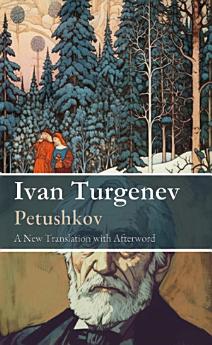Petushkov
About this ebook
Much like Turgenev’s broader oeuvre, Petushkov reveals his fascination with the minutiae of personal relationships and their intersection with broader societal structures. Pyetushkov’s failure in both love and ambition exemplifies the "superfluous man" motif that echoes throughout Russian literature—an individual alienated not by society but by his own inaction and lack of purpose. This early treatment of the "лишний человек" (superfluous man) anticipates the existential crises faced by Turgenev’s later protagonists and underscores the broader theme of passivity in a rapidly modernizing Russia. Pyetushkov’s somewhat futile existence serves as a microcosm for Turgenev’s critique of Russian bourgeois life, where ennui and detachment reign supreme. By presenting a protagonist who is tragically aware of his limitations but incapable of transcending them, Turgenev comments on the growing disillusionment of his generation with the stagnant social structures that governed Russian life. Pyetushkov’s narrative arc, much like those of many Turgenev characters, thus becomes a commentary on missed opportunities and the failures of individuals to seize meaningful lives amidst a backdrop of societal decay.
This critical reader's edition presents a modern translation of the original manuscript, crafted to help the reader engage directly with Turgenev's works through clean, contemporary language and simplified sentence structures that clarify his complex ideas. Supplementary material enriches the text with autobiographical, historical, and linguistic context, including an afterword on Turgenev’s history, impact, and intellectual legacy highlighting the personal relationships that shaped his philosophy (focusing on Dostoevsky, Tolstoy and Gogol), an index of the philosophical concepts he employs (emphasizing Realism and Nihilism) a comprehensive chronological list of his published writings, a brief biography, and a detailed timeline of his life.











